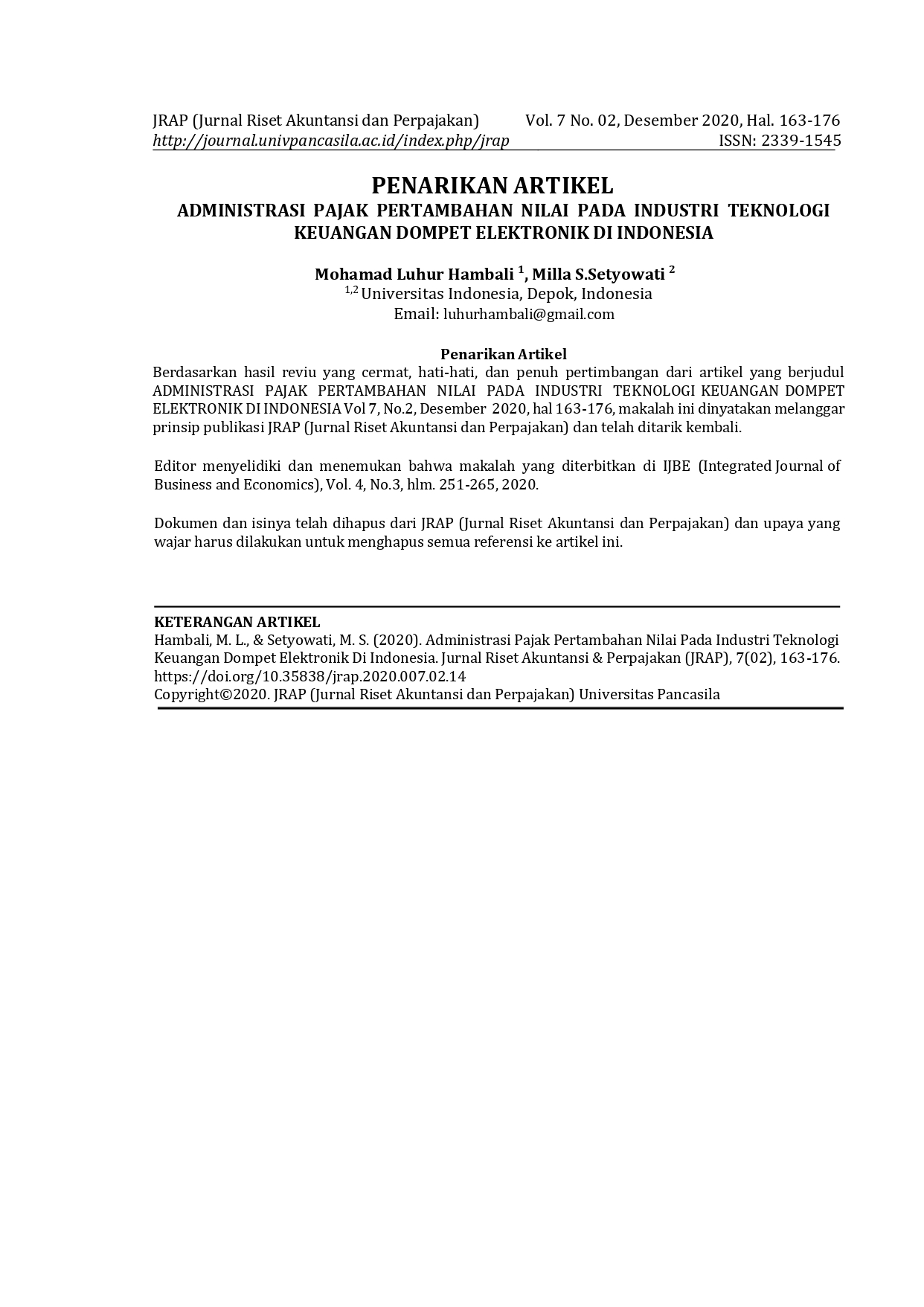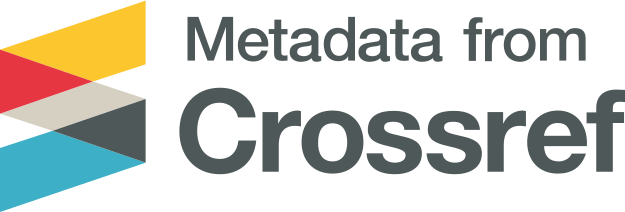PENARIKAN ARTIKEL : Administrasi Pajak Pertambahan Nilai Pada Industri Teknologi Keuangan Dompet Elektronik Di Indonesia
Abstract
Abstact
References
Reference

Published
2020-12-29
How to Cite
Hambali, M. L. (2020). PENARIKAN ARTIKEL : Administrasi Pajak Pertambahan Nilai Pada Industri Teknologi Keuangan Dompet Elektronik Di Indonesia . Jurnal Riset Akuntansi & Perpajakan (JRAP), 7(02), 163-176. Retrieved from https://journal.univpancasila.ac.id/index.php/jrap/article/view/1502
Issue
Section
Articles
Copyright (c) 2020 Mohamad Luhur Hambali, Milla S. Setyowati

This work is licensed under a Creative Commons Attribution-ShareAlike 4.0 International License.
Authors who publish with this journal agree to the following terms:
- Authors retain copyright and grant the journal right of first publication with the work simultaneously licensed under a Creative Commons Attribution-ShareAlike 4.0 International License that allows others to share the work with an acknowledgement of the works authorship and initial publication in this journal.
- Authors are able to enter into separate, additional contractual arrangements for the non-exclusive distribution of the journals published version of the work (e.g., post it to an institutional repository or publish it in a book), with an acknowledgement of its initial publication in this journal.
- Authors are permitted and encouraged to post their work online (e.g., in institutional repositories or on their website) prior to and during the submission process, as it can lead to productive exchanges, as well as earlier and greater citation of published work (See The Effect of Open Access).













